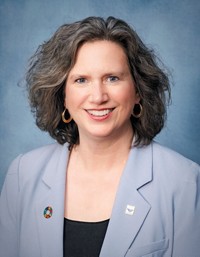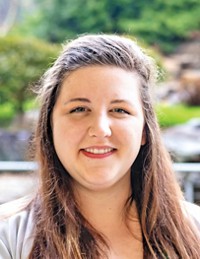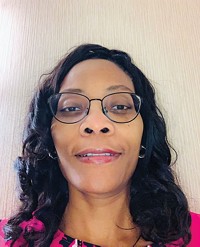Advertisement
Grab your lab coat. Let's get started
Welcome!
Welcome!
Create an account below to get 6 C&EN articles per month, receive newsletters and more - all free.
It seems this is your first time logging in online. Please enter the following information to continue.
As an ACS member you automatically get access to this site. All we need is few more details to create your reading experience.
Not you? Sign in with a different account.
Not you? Sign in with a different account.
ERROR 1
ERROR 1
ERROR 2
ERROR 2
ERROR 2
ERROR 2
ERROR 2
Password and Confirm password must match.
If you have an ACS member number, please enter it here so we can link this account to your membership. (optional)
ERROR 2
ACS values your privacy. By submitting your information, you are gaining access to C&EN and subscribing to our weekly newsletter. We use the information you provide to make your reading experience better, and we will never sell your data to third party members.
Careers
Committee On Project SEED
Long-term goals include expanding the program and better tracking of former participants
by Linda Wang
February 18, 2008
| A version of this story appeared in
Volume 86, Issue 7
Committee On Project SEED
Chair
J. Philip Bays, professor of Chemistry at
St. Mary's College, in Notre Dame, Ind.
Website
E-mail Address
Telephone
(800) 227-5558 ext. 4380
Membership
14 full members, six associates, one ACS staff liaison, one ACS Education associate
Classification
Other Committee of the Board
Subcommittees
Program I and II, Scholarships, Planning, Public Awareness, Special Projects
Inception
Established by the ACS Board of Directors in 1981
This year marks the 40th anniversary of Project SEED (page 42), and the Committee on Project SEED is gearing up for a big celebration. As the committee reflects on the many successes of the program, which is designed to give economically disadvantaged high school students a chance to experience chemistry-related sciences, it is also contemplating ways to improve.
"Going forward, we're hoping to establish a method of maintaining contact with previous students," says J. Philip Bays, chair of the committee and a professor of chemistry at Saint Mary's College, in Notre Dame, Ind. "We're also hoping to attract new mentors and coordinators and get them involved in the program so that it can expand."
Project SEED is the American Chemical Society's most successful social action program. The program relies on scientist-mentors who volunteer to bring students into their labs to work on their research projects for an eight- to 10-week period over the summer. Mentors come from academia, industry, and government.
The Committee on Project SEED works closely with the ACS Project SEED Office and hundreds of mentors and regional coordinators from around the country to make sure that the program runs smoothly. The committee works to promote the program both within and outside ACS. It also plays an active role in reviewing applications for Project SEED scholarships.
While coordinators of regional Project SEED programs have the primary responsibility of matching students with mentors, the committee approves and grants funding for each project. Students who participate in the program receive a $2,500 stipend. Those who continue to conduct research receive a $3,000 stipend for their second summer.
The committee has its roots in the Subcommittee on the Education & Employment of the Disadvantaged, which was formed in 1968. The subcommittee was part of the larger Committee on Chemistry & Public Affairs. In March 1981, during the ACS national meeting in Atlanta, ACS Council voted to convert the subcommittee's designation to an "other" committee of the council.
Despite the formation of the Committee on Project SEED and the increased visibility that it brought, Project SEED continued to struggle for funding. To keep the program from folding, Jeannette E. Brown, who chaired the committee in the mid-1980s and is now retired, joined with several other committee members to lead passionate fund-raising efforts. "We did enough fund-raising to convince the board that we could keep the program viable," she says. In 2008, Project SEED will have a budget of more than $1 million for student stipends.
Currently, the committee is made up of 14 full-time members, six associates, and two ACS staff members. The committee splits its work among various subcommittees, including one that oversees the application and selection process of Project SEED participants, one that oversees the scholarship program, and one to increase the visibility of Project SEED.
The committee is also working toward its long-term goal of keeping tabs on its former Project SEED students. "We know who participated in Project SEED, but we don't know what happened to them," Bays says. "We're hoping that will improve." He notes that the committee is exploring different approaches, including possibly setting up a social-networking site like Facebook where alumni can update their contact information.
Another goal of the committee is to continue to expand the Project SEED program to include additional regions that have large populations of economically disadvantaged high school students. Currently, 27 states and Washington, D.C., have Project SEED programs. This summer, Project SEED will expand into Houston; Milwaukee; St. Paul, Minn.; St. Louis; and Austin, Texas. In 2009, the program will add Los Angeles, Puerto Rico, Chicago, Miami, and Atlanta.
At the moment, Project SEED cannot serve every student who would benefit from the program. "There needs to be a match between a place where they can do the research and where the students live," Bays says. For example, in the middle of Kansas, "you may have a high density of Hispanic workers whose children need this help, but there may be no place for them to perform their research," he adds.
The committee is also busy planning 40th anniversary celebrations during the spring and fall national meetings. In New Orleans, the committee is hosting a presidential event on how to start a Project SEED program. The workshop will be held on Monday, April 7, from 9 AM to noon in the Galvez Room at the New Orleans Marriott.
This fall, in Philadelphia, a symposium will highlight the history of Project SEED, and former participants will offer their recollections of the program. Recent Project SEED students will present their posters during Sci-Mix. The committee will also recognize long-time mentors and coordinators, who volunteer countless hours of their time and are crucial to the success of the program. "They are the real unsung heroes of Project SEED," Bays says.
- » Harvesting Project SEED
- C&EN catches up with past participants in ACS’s 40-year-old mentoring program
- » Project SEED From The Ground Up
- Mentoring program has its roots in the political and social turmoil of the 1960s
- » Committee On Project SEED
- Long-term goals include expanding the program and better tracking of former participants
- » 2007–08 Project SEED College Scholarships
- The ACS Committee on Project SEED has announced the winners of its 2007–08 college scholarships.
- » Photo Gallery: Past SEED Participants





Join the conversation
Contact the reporter
Submit a Letter to the Editor for publication
Engage with us on Twitter